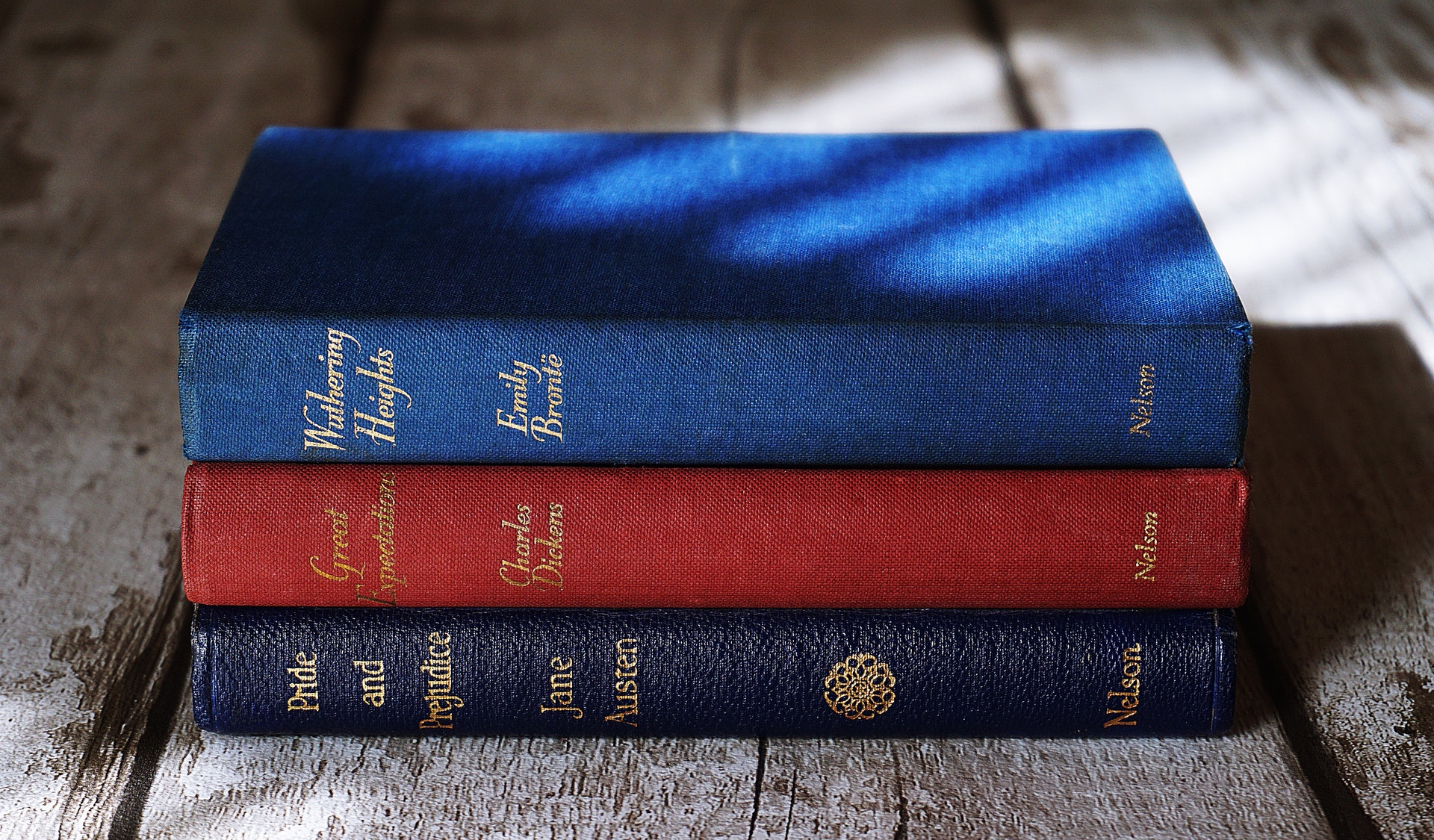A good book that stands the test of time does so for a reason. Classic literature offers so much more than just several hours of entertainment. The best books help us to understand humanity, give us insight into other people’s flaws, as well as our own, and inspire us to live morally and courageously, and to treat others with dignity and kindness; universal values which don’t change with time.
In addition, unlike many of our fast-paced, emotionally stimulating novels of today, classics use complex language and sentence structure that not only transports us more thoroughly into the lives of their characters, but also makes us exercise our brains and focus. They frequently address issues of the times, both philosophically and politically, which can be remarkably relevant to current events.
Improve your intellect
While the length of some classics may appear daunting, the content is captivating, and each of those pages is filled with valuable learning material. You’ll encounter new words to add to your vocabulary, which will bring better comprehension of more complicated reading material.
Reading material that takes more attention and more time also increases your attention span. Jenny Phillips, a mother disappointed in her own children’s reading material, founded ‘The Good and the Beautiful,’ a valuable resource for parents seeking wholesome and enriching classics for children. In her video How Books Have Changed, she compared the first five sentences of best selling classics from 1877, with best sellers in 2019.
While the classics were rich in figurative language, broad in vocabulary, and boasted a complex sentence structure, exceeding 20 to 30 words per sentence; the modern best sellers lacked all of the above, with the first five sentences in total using only 20 to 30 words. In a sense, our modern literature has been “dumbed down.” Fortunately, we still have many classics that can stimulate our intellect; we just need to pick them up.
Broaden your horizons
Success
You are now signed up for our newsletter
Success
Check your email to complete sign up
Classics naturally stem from an earlier time period, and many were written in a foreign language; they give us rich context to another culture. Fine details of scenery and customs that you might miss even if you were there, are layed out on a page for you to savor and devour. Chinese classics like Wu Cheng’en’s Journey to the West and Luo Guanzhong’s Romance of the Three Kingdoms sweep us into the powerful myths of ancient and exotic China.
Simply because of their age, the classics give a valuable vignette of history in a manner that is easy-to-digest. Just following the characters’ daily lives and challenges in fine and beautiful language can plant a picture of the past like no other format. Novels like Thomas Hardy’s Far From the Madding Crowd, and George Elliot’s Adam Bede bring the trials of rural Old England to life with exquisite charm and poignancy.
Thinking and discussions at various levels of society from the past can also give us insight into the social issues of today. Books like Charles Dickens’ A Tale of Two Cities and Fyodor Dostoevsky’s The Idiot are set in times of social unrest, and provide important background regarding class struggles and the emergence of communism.
Discover your inner fortitude, faith, and faults
Sometimes it’s easier to see yourself in others. While television’s and films’ visual portrayal of characters can be strong and memorable, descriptive writing allows us to reflect more deeply on specific character traits, and consider how they are viewed by others.
Charles Dickens and Jane Austin, in particular, had a talent for poking fun at the absurdities in their flawed characters. Finding any of those traits in ourselves would certainly prompt us to be more mindful of our own words and actions.
Characters overcoming hardships, on the other hand, can be inspiring and motivational. In Harper Lee’s To Kill a Mockingbird and Aldous Huxley’s Brave New World, the protagonists face an overwhelming societal wrong, yet cling to their moral beliefs to do what is right; reminding us how important it is for one to maintain his moral compass in the face of evil, regardless of the outcome.

Works like Nathanial Hawthorne’s Scarlet Letter, and Hardy’s Tess of the D’Urbervilles feature main characters who face their inner turmoil with incredible forbearance, recalling the importance of a strong mind, even if the body is weak.
Leo Tolstoy’s War and Peace may be the longest and strongest piece of literature you would ever care to read. With a wide array of complicated characters and several interrelated plots, faith and spiritual enlightenment are among the many weighty topics addressed. Selfishness, indulgence, doubt, and fear are all overcome, as the characters find courage, faith, and unconditional love. Aside from a largely accurate historical account of the Napoleonic invasion of Russia, War and Peace offers a rich and satisfying taste of Russian culture and beliefs.
Charlotte Brontë’s Jane Eyre is the quintessential selfless character. Facing one hardship after another in her youth, always striving to be better, and finally finding true happiness in love, Jane relinquishes everything because of her moral beliefs. Bitter sweet is her reward, but she does not regret her actions.
Enhance your communication and social skills
Communication is key in so much of our daily lives, and poor communication can lead to misunderstandings and failed relations. Reading the classics is a natural way to improve communication skills, as the characters’ conversations are often excellent examples of fine dialogue. Their clearly articulated feelings and wishes show us the potential for improvement in our own use of words.
The mature and rational way that problems are resolved in the classics, or even the feuds that result over miscommunication both give us guidance in how to conduct ourselves with others. Honorable and kind interactions always prove to be more successful than offensive and angry words.
Studies have shown that readers of quality fiction have greater social cognition. Reading the classics helps us relate to others. We come to recognize a wide range of thoughts and feelings exhibited in their varied and colorful characters, resulting in the essential quality of empathy. A person who is empathetic is easy to get along with, kind, and patient. It is a quality that serves to improve all our relationships as well as our role in society.
Wholesome entertainment for your children
Books like Laura Ingalls Wilder’s Little House series, The Chronicles of Narnia, by CS Lewis, and other classic children’s stories are better choices than much of today’s literature meant for kids. They build a moral standard, rather than degrade it, guiding our youth to become upstanding, respectful and hardworking adults.
In her comparison of classics versus modern literature, Jenny Phillips charted the reduction of moral lessons in books from 1810 to 1950. In 150 years of literature, the number of pages out of 25 that emphasized a moral lesson dropped from 16.1 to .6. Today’s popular books often focus on humor that is unkind or disrespectful to others, while the classics give valuable life lessons.
Wholesome and ethical literature for our children can help them resist the myriad of temptations in this increasingly ego-centric world; teaching them to be responsible to themselves and others, and to follow their consciences, rather than their whims. For Jenny’s recommended reading, spanning all ages of young readers, visit her Good and Beautiful website.
The best thing about the classics is that they never get “old.” You can read them again and again, finding new details and richer meaning with each read. So pick up a classic today, even if you have read it already; it is worthy of your time and will bring benefits beyond what you imagine.















